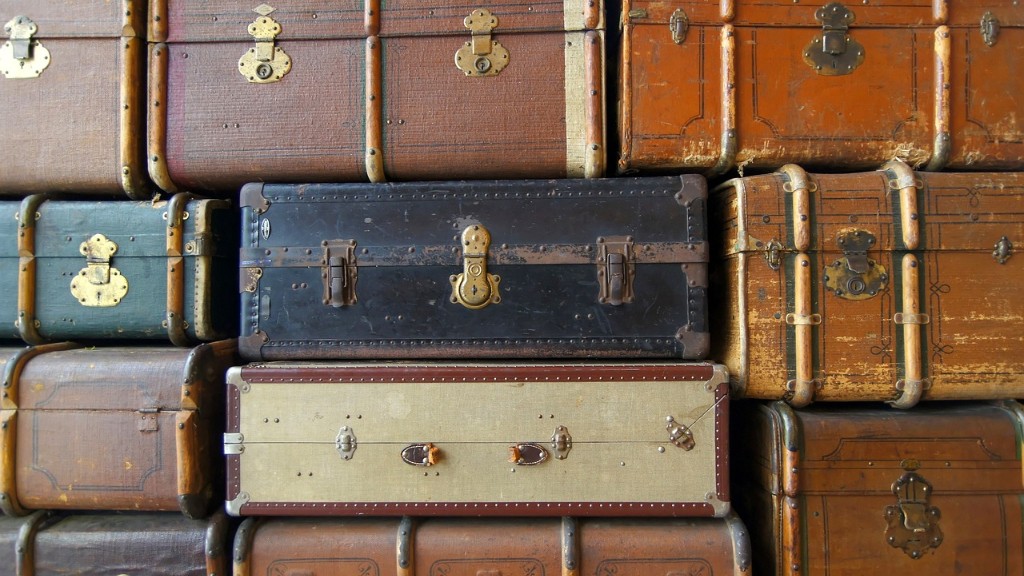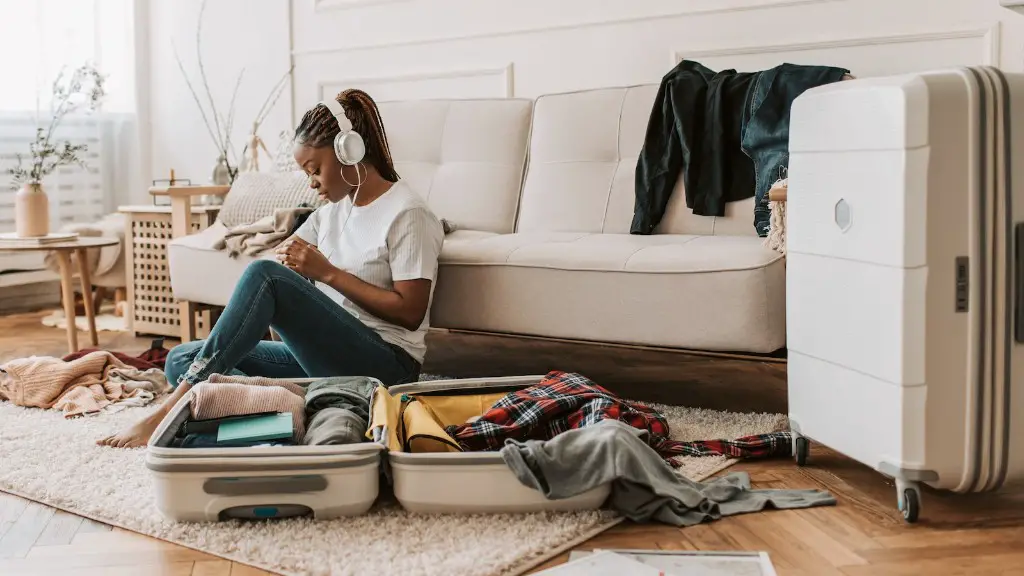There are a lot of variables to consider when determining whether cruise travel insurance is worth it for you. Your age, health, and the cost of the cruise are some of the main factors. If you are young and healthy, you may not need as much coverage as someone who is older or has health issues. The cost of the cruise is also a factor, as insurance may be a lower percentage of the total cost for a more expensive cruise.
There is no definitive answer to this question as it depends on a variety of factors, such as the cruise line you are sailing with, the duration of your cruise, and your personal travel insurance needs. That said, many experts generally recommend purchase cruise travel insurance, as it can provide valuable protection in the event of a cancelled or interrupted cruise.
Should you get vacation protection on my cruise?
There are a number of factors to consider when deciding whether or not to purchase travel insurance for your cruise. The most important factor is whether or not your cruise line offers any type of protection in case of an emergency. If your cruise line does offer protection, you should consider the coverage they offer and whether or not it is sufficient for your needs.
Another important factor to consider is the cost of travel insurance. Travel insurance can be quite expensive, so you need to decide if the cost is worth the coverage.
Finally, you should consider the likelihood of needing to use travel insurance. If you are taking a short cruise with no stops in foreign countries, the likelihood of needing to use travel insurance is quite low. However, if you are taking a longer cruise with multiple stops in foreign countries, the likelihood of needing to use travel insurance is much higher.
With those factors in mind, it’s very often now that the answer is: Yes, you should insure your cruise. The purpose of travel insurance is to cover the nonrefundable costs associated with your trip in case of an unforeseen event.
Most cruise insurance plans may cover medical emergencies, trip cancellation, trip interruption, medical evacuation, and lost, damaged, or stolen luggage when you’re on a cruise. Cruise insurance can also cover cruise-ship disablement and pre-existing conditions, depending on when you buy coverage.
Do you need health insurance on a cruise
You don’t need insurance to go on a cruise, but it can be wise to buy some. You might want travel insurance if this is your first time going on an ocean voyage or if you’re traveling with a large group and not everyone in the group has purchased insurance.
If you are feeling sick, it is best to let the ship’s medical personnel know so they can determine if you are feverish, contagious, or otherwise ill. If they determine that you are sick, they may prevent you from boarding the ship.
How do I protect myself on a cruise?
Pay attention during the muster drill:
This is one of the most important safety procedures on a cruise ship and it is important to pay attention and follow the instructions of the crew.
Drink alcohol responsibly:
Alcohol can make you less aware of your surroundings and increase your risk of injury. It is important to drink responsibly and not to drink too much.
Buddy up:
If you are going to be exploring the ship or going onshore, it is always a good idea to buddy up with someone else. This will help you stay safe and keep an eye on each other.
Practice in-cabin safety:
Make sure you know how to use the safety features in your cabin, such as the life jacket and the fire extinguisher.
Be safe on your balcony:
Don’t lean over the railing and be careful when opening and closing the balcony door.
Use your safe:
Keep your valuables in the safe in your cabin. This will help to protect them in case of an emergency.
Get to know your steward:
Your steward is there to help you and can be a valuable resource for information about the ship and its facilities
A cruise holiday is a great way to see the world and relax at the same time. But it’s important to make sure you’re properly insured in case anything goes wrong. A standard policy will cover lost and stolen belongings, trip cancellation, medical expenses and repatriation. But there are extra levels of cover designed for cruise holidays including cabin confinement cover, airlifts to hospital, missed ports and unused excursions. Make sure you’re fully covered before you set sail.
Why is cruise travel insurance so expensive?
It is important to get cruise holiday insurance that covers you for extra costs such as these, in case you fall ill on your trip.
Yes, you can buy insurance after booking your trip. It is best to buy it as soon as possible after making your initial deposit, while it is still fresh in your mind. Plus, if you buy it within two weeks of making the first deposit, you can often qualify for bonus coverages.
What happens if you get COVID while cruising
If you or your travel companions have COVID-19 symptoms or test positive at embarkation, the cruise ship may deny you from boarding. If you are allowed to board, you may be required to isolate or take other precautions, depending on your symptoms and test results.
This is important to know because if you are planning to go on a cruise, you will need to make sure that you have the proper insurance in place. Normal travel insurance may not cover events that are specific to cruises, such as cabin confinement, emergency airlift to hospital, missed port, or unused excursions. You will need to purchase specialist cruise cover in order to be properly protected.
Do you have to pay to see a doctor on a cruise ship?
Nowadays, many people are choosing to cruise as their primary vacation option. While this can be a great experience, it is important to be aware of the potential costs associated with medical care while cruising. If you should happen to get sick or need any type of medical treatment or emergency services, you will most likely have to pay for it out of pocket. Even if you receive treatment or medicine from the ship’s physician, the cost will likely be charged to your cabin folio. Therefore, it is important to have a good understanding of your medical coverage and what costs may be associated with getting medical care while cruising.
Noroviruses are a leading cause of disease outbreaks from contaminated food in the United States.
Noroviruses are a type of virus that affects your stomach and intestines and is the leading cause of foodborne illness. These viruses are also known as “food poisoning” viruses.
The main way these viruses spread is through contact with contaminated food or water. When someone is ill with a norovirus, they can shed billions of virus particles.
These particles are very contagious and can easily spread to others. Just a few particles can make someone sick.
Noroviruses are especially a problem on cruise ships because there are so many people in close quarters. When one person gets sick, it’s very easy for the disease to spread quickly throughout the ship.
There are a few things you can do to protect yourself from noroviruses:
• Wash your hands often, especially after using the restroom or handling food.
• Avoid eating food from buffets or common food areas.
• Be sure to properly cook all your food, especially shellfish.
• If you do get sick, stay in your cabin and away from others as much as
What percentage of people get sick on cruises
How common is it to get sick on a cruise?
According to a recent study, 15% of people have reported feeling seasick while onboard a cruise. In our experience, we can add an additional 10% of passengers that will suffer from other illness, such as colds, flu, and hangovers.
While the odds of getting sick on a cruise are relatively low, there are certain things you can do to help prevent illness. First, be sure to practice good hand hygiene by washing your hands regularly and using hand sanitizer. Secondly, avoid sharing food and drinks with others. Finally, if you start to feel sick, be sure to see the ship’s doctor or nurse as soon as possible.
If you don’t have a history of motion sickness, there’s no need to worry about seasickness on a cruise. The vast majority of people never get sick on a cruise, for two reasons: The first is that cruise liners have the benefit of sheer size, meaning they move less in the water. The second is that cruises typically follow a set route, so you can get used to the motion of the waves.
What protects cruise ships from pirates?
There are various anti-piracy weapons that ships can use to fight pirates. Some of these include the Long Range Acoustic Device (LRAD), water cannon, electric secure fence, nets – boat traps, slippery foam, foul smelling liquid, and the anti boarding device – razor wire canister. Each of these has its own advantages and disadvantages, so it is up to the ship captain to decide which is best for their particular situation.
If you’re worried about getting sick on your cruise, there are a few things you can do to reduce your risk. First, see a travel medicine specialist before your trip to get any vaccinations or medications you may need. Second, pack your own hand sanitizer and travel-size disinfectant to use throughout the cruise. Third, avoid common serving utensils and no sharing. Fourth, wash your hands obsessively. Fifth, eat your foods cooked and skip unpasteurized foods. Finally, use your own restroom as much as possible. By following these tips, you can reduce your risk of getting sick on your cruise.
Conclusion
There is no one definitive answer to this question. Some people may feel that cruise travel insurance is worth the investment, while others may disagree. Ultimately, it is up to the individual to decide if they feel comfortable taking the risk of travelling without insurance or if they would prefer to have the peace of mind that comes with having a policy in place.
After doing some research, it seems that cruise travel insurance is worth it if you are worried about any potential risks while on your cruise. This insurance can cover you for things like cancellations, missed port departures, medical emergencies, and more. While the cost of the insurance may seem like a lot, it could end up saving you a lot of money in the long run if you run into any problems on your trip.




